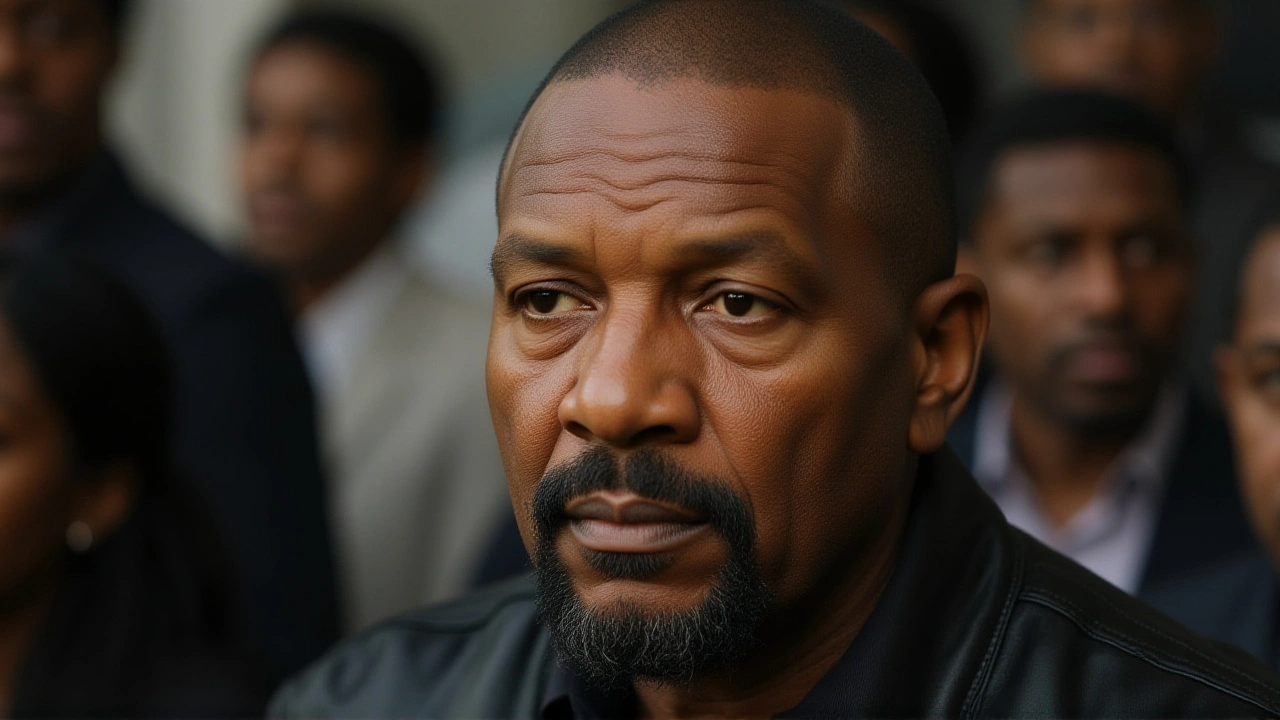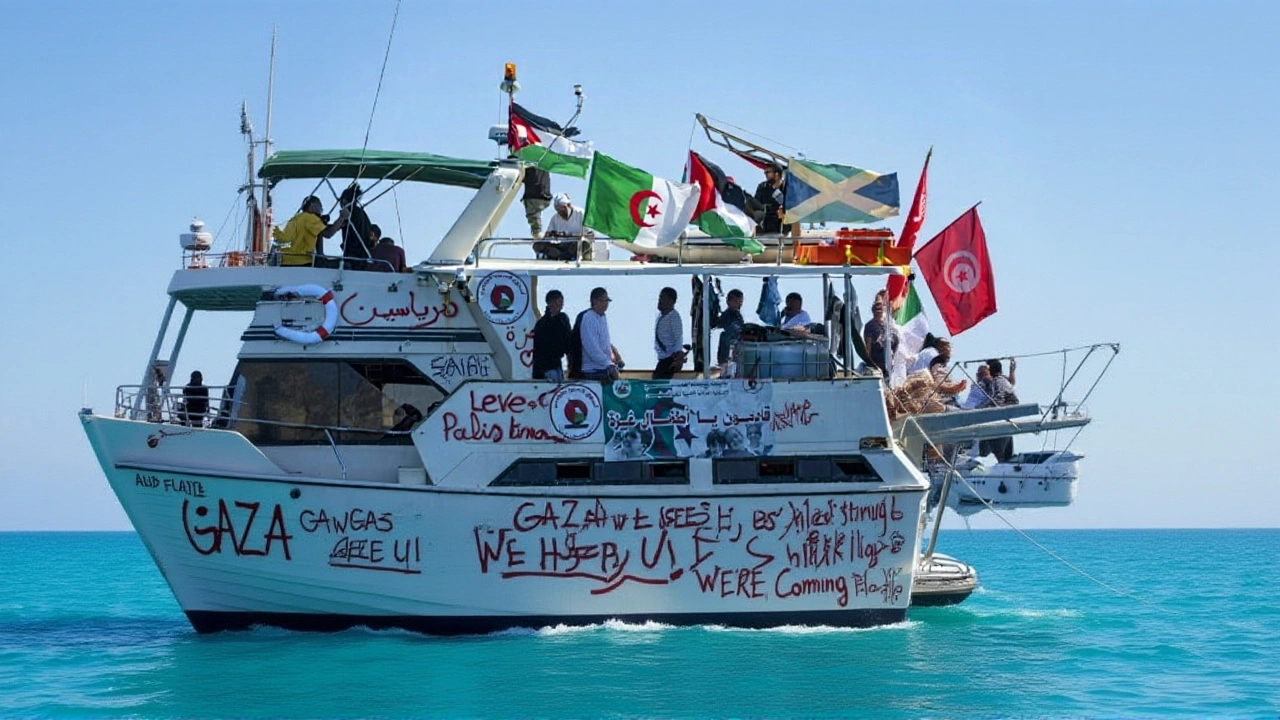When Greta Thunberg, the Swedish climate activist, was seized aboard an aid convoy bound for Gaza, the world took notice.
On October 2, 2025, Israeli Navy intercepted the Global Sumud Flotilla approximately 75 miles off the Gaza coast. More than 400 people aboard nearly 40 vessels were detained and escorted to Ashdod Port in southern Israel.
Background to the Gaza blockade
Since Israel imposed a naval blockade on the Gaza Strip in 2007, the waterway has been a flashpoint for humanitarian and security concerns. Israel argues the blockade is a defensive measure aimed at preventing weapons smuggling to Hamas, while critics contend it amounts to collective punishment of Gaza’s 2 million residents.
The blockade gained renewed scrutiny after the October 7, 2023 Hamas attacks, which Israel described as "the worst attack against Jews since the Holocaust." In the ensuing war, over 66,000 Palestinians were reported dead, and the blockade tightened amid fears of further arms flows.
The Global Sumud Flotilla and its mission
The flotilla, organized by a coalition of peace groups under the banner of Global Sumud Flotilla, set out to deliver symbolic aid—food, medicine, and water purification kits—to civilians in Gaza. Estimates put the number of activists at around 500, including lawyers, doctors, and at least one Member of the European Parliament.
"Our mission was purely humanitarian and non‑violent," said Thunberg after her release, adding, "I have been abducted and taken against my will by Israeli forces." The activists hoped the high‑profile nature of the convoy would pressure Israel to open a safe humanitarian corridor.Among the participants were citizens from Sweden, Germany, Greece, Turkey, and several Arab nations, reflecting a broad international coalition determined to challenge the status quo.
Israeli Navy interception
According to the Israeli defense spokesperson, the naval operation was "well‑coordinated and peaceful." Nearly 40 vessels—ranging from small sailboats to larger motorized ships—were approached by Israeli patrol boats. Crew members were ordered to stop, and none of the vessels offered armed resistance.
Detained activists were taken to Ashdod, where they were processed and then released on humanitarian grounds after diplomatic pressure mounted. No physical injuries were reported, but the psychological impact on participants was palpable.
Legal and diplomatic reactions
Legal experts quickly weighed in. Professor Avi Bell of Tel Aviv University noted, "Whether the detention is lawful depends on the lawfulness of the blockade. A blockade must be defensive; if it is deemed punitive, the detention could violate international law."
The United Nations Office for the Coordination of Humanitarian Affairs (OCHA) issued a statement urging Israel to allow unimpeded humanitarian deliveries, while the European Union called for an "immediate review of the blockade's legality." Meanwhile, Israel’s Ministry of Foreign Affairs labeled the flotilla a "Hamas‑linked operation" and claimed it had offered a safe passage corridor that the activists ignored.
Implications for humanitarian access
The incident underscores the growing tension between security concerns and the right to humanitarian aid. Humanitarian NGOs report that delivery trucks are often delayed or turned back at checkpoints, and maritime routes have become the last viable option for bulk supplies.
For activists, the seizure is a stark reminder of the risks involved in direct‑action campaigns. It also highlights how high‑profile figures like Thunberg can amplify a cause, but also become targets of state enforcement.
What comes next?
In the weeks ahead, several diplomatic channels are expected to re‑engage. The United States, which has historically backed Israel’s security measures, is reportedly nudging both sides toward a mediated humanitarian corridor.
Activist groups say they will reassess their tactics, possibly shifting toward air‑drop deliveries or negotiating corridor guarantees with Israeli authorities. The broader debate over the Gaza blockade is unlikely to fade anytime soon, especially as the death toll continues to climb and international pressure mounts.
Key facts
- Date of interception: October 2, 2025
- Location: ~75 miles off the Gaza coast
- Number of vessels intercepted: ~40
- People detained: >400, including Greta Thunberg
- Destination after detention: Ashdod Port, Israel

Frequently Asked Questions
Why did Israel consider the flotilla a security threat?
Israel argued that the convoy could be used to smuggle weapons to Hamas, citing past incidents where maritime routes were exploited. The navy claimed it offered a safe‑passage corridor that the flotilla refused, thus deeming the vessels a breach of the blockade.
What legal arguments challenge the blockade's validity?
Under international law, a blockade must be proportionate and not cause excessive civilian harm. Critics say Israel’s siege restricts food, medicine and clean water to Gaza's 2 million residents, violating the Fourth Geneva Convention. Legal scholars argue the blockade is punitive rather than defensive.
How has the international community responded?
The EU issued a formal protest, calling for an immediate review of the blockade. The United Nations urged the opening of humanitarian corridors, while several countries organized street demonstrations supporting the detained activists.
What impact does this have on future aid deliveries?
Activist groups are likely to explore alternative routes, such as coordinated air‑drops or negotiated sea lanes with Israeli oversight. The incident may also push diplomatic efforts toward establishing a regulated maritime corridor for aid.
Who else was detained besides Greta Thunberg?
The detainees included lawyers from the International Bar Association, doctors from Médecins Sans Frontières, and a Member of the European Parliament whose name was not disclosed for security reasons. All were released after diplomatic negotiations.

Amy Paradise
October 2, 2025 AT 23:49Wow, that flotilla drama really blew up fast 😊. The sheer number of people-over 400-detained shows how high tensions have risen. It's wild that even climate icons like Greta got caught up in this maritime showdown. I think it's a reminder that humanitarian aid can quickly become a political flashpoint. Let's keep an eye on how the diplomatic talks play out.
Janette Cybulski
October 4, 2025 AT 09:09Seeing so many doctors and lawyers on board really underscores the civilian focus of the mission. It's heartbreaking that they were treated like security threats rather than aid workers. Hopefully the international pressure will open a safe corridor soon.
Mildred Alonzo
October 5, 2025 AT 18:29the blockade raises serious legal questions its impact on civilians cant be ignored
Elizabeth Bennett
October 7, 2025 AT 03:49While Israel cites security concerns, the proportionality of a 15‑year blockade is debatable. History shows that collective punishment rarely solves underlying conflicts. We need multilateral mechanisms that respect both safety and human rights.
linda menuhin
October 8, 2025 AT 13:09i cant help but wonder if the sea itself is a mirror for our moral compas. when we block the water, are we not blockin the flow of our own conscience? the waves keep rollin, indifferent to borders, yet we draw lines in the sand.
Jeff Abbott
October 9, 2025 AT 22:29Another whiney PR stunt from the left, trying to paint Israel as the villain again. If you actually read the intel, you'd see these activists just invite trouble and jeopardize real security. Stop romanticizing illegal sea trips-they're a disaster waiting to happen.
Quinton Merrill
October 11, 2025 AT 07:49Interesting approach-does anyone know if there were prior agreements on maritime corridors that Israel rejected? 🤔 Also, how many of those vessels were actually inspected for weapons before the blockade? 🌊
Linda Lawton
October 12, 2025 AT 17:09It's all a grand puppet show, folks-transparent smokescreen and covert agendas. They want us to believe it's about humanitarian aid, but it's really about controlling resources and silencing dissent. Wake up!
Ashley Bradley
October 14, 2025 AT 02:29The interception of the Global Sumud Flotilla marks yet another chapter in the protracted saga of the Gaza blockade, a policy that has persisted for nearly two decades and has been subject to endless debate in international forums. From the outset, Israel has justified the maritime restrictions on the grounds of national security, asserting that any vessel approaching Gaza could be covertly weaponized and used to bolster Hamas's militant capabilities. Critics, however, point to the disproportionate impact on the civilian population, highlighting the chronic shortages of food, medical supplies, and clean water that have become endemic in the enclave. Humanitarian law, particularly the Fourth Geneva Convention, obligates occupying powers to ensure the well-being of protected persons, and many legal scholars argue that a blanket blockade fails this test of proportionality. The involvement of high‑profile figures such as Greta Thunberg adds a layer of global visibility that can pressure governments into reassessing their strategies. Yet the presence of activists does not automatically translate into effective aid delivery, especially when the parties involved are locked in mutual distrust. The Israeli Navy's claim of offering a “safe‑passage corridor” was rejected by the flotilla organizers, who perceived it as a mechanism that would enable Israeli oversight and potentially compromise the neutrality of the aid. This impasse reflects a broader pattern where humanitarian initiatives are entangled with political objectives, making pure altruism difficult to achieve. Moreover, the detention of over 400 individuals-among them doctors, lawyers, and even a Member of the European Parliament-raises concerns about the treatment of non‑combatants under international standards. While the activists were eventually released following diplomatic negotiations, the episode underscores the fragility of ad‑hoc humanitarian corridors. Looking ahead, the international community may need to broker a more structured maritime agreement, perhaps involving third‑party monitoring to ensure compliance on both sides. Such an arrangement could mitigate the risk of weapon smuggling while guaranteeing the flow of essential supplies to civilians. In the meantime, alternative delivery methods, such as coordinated air‑drops or land routes subject to joint oversight, are being explored. The broader question remains: can a lasting solution be found that balances legitimate security concerns with the moral imperative to alleviate suffering? Only time, and sustained diplomatic effort, will tell.
Joe Delaney
October 15, 2025 AT 11:49That was a thorough breakdown.
Ruben Vilas Boas
October 16, 2025 AT 21:09Appreciate the detail, especially the call for third‑party monitoring. It’s a practical step forward.
George Thomas
October 18, 2025 AT 06:29While the moral arguments are compelling, any modification to the blockade must be rooted in verifiable security assessments. Without concrete data demonstrating reduced threat levels, policy changes risk unintended consequences. A balanced approach, incorporating independent inspections, would likely satisfy both humanitarian and security imperatives.
Michelle Linscomb
October 19, 2025 AT 15:49Enough with the blame‑games-let’s focus on cutting the red tape and getting aid ashore NOW.